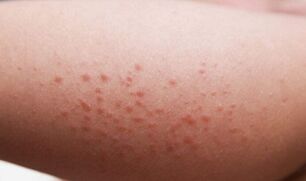
It is often difficult to determine the presence of parasites in the human body. It is almost impossible to do it yourself. Since in the early stages, you may simply not realize that something is wrong with your health. And in the later stages, when real health problems begin, the symptoms are usually attributed to something else and are treated mostly separately, without a deep understanding of the problem.
There is nothing more disgusting than the thought of a worm living in your stomach, but there are those who want to swallow the parasite voluntarily to lose weight or get rid of toxins
After reading this article, you can study the problem in more detail and understand in time how to determine the presence of parasites in the body, ie to restore a complete picture of your body.
What parasites can be in our body
Basically, the organisms that parasitize our organs are divided into two types: endoparasites and ectoparasites.
Endoparasites parasitize our body and other tall organisms, live inside them and feed on the cells of the organisms. Endoparasites are all worms, light bulbs, toxoplasma, echinococcus. It can be fungi and bacteria, viruses.
The second type of bacteria is ectoparasites. They live on the surface of bodies, that is, in our nature, in our body. Their food is the cells of our tissues, for example, our skin, as well as our blood. More specifically, these are parasites such as bedbugs, lice, fleas, ticks. Mosquitoes and flies are also referred to as exoparasites.
How to determine the presence of parasites in the body with symptoms
How to find out if there are parasites in the body is possible both in its appearance and in its internal state.
There are many symptoms associated with parasites. Since these symptoms are quite popular, they are also symptoms of common diseases, people usually do not even suspect their presence in the body. Therefore, the symptoms are treated separately and, in turn, reappear after treatment.
You can often find doctors' recommendations to start treatment when several symptoms from the following groups of parasitic prophylaxis appear. In any case, it will help you become healthier. Below we will see a complete list of symptoms, divided into groups and you will learn how to determine if there are parasites in your body.
Symptoms of the digestive tract

- constipation.Worms can be quite large. Therefore, they can block some of the outlets of the digestive organs. Some parasites can completely close the intestinal and bile ducts. This usually affects your stool. It can become rare and difficult.
- diarrhea.It is generally believed that diarrhea is a well-known reaction to poor nutrition. But this does not always happen. Many bacteria produce hormones that affect the stool in this way.
- gases and bloating.Very often parasites are found in the small intestine and this usually leads to flatulence, followed by copious gas. If the bloating is almost constant, then it is an opportunity to think about the possible presence of parasites in the body.
- Irritable bowel syndrome.Because parasites live by supplying substances from our body, for example fats, the intestinal wall is irritated very often. And this is followed by a certain amount of symptoms and a decrease in the absorption of nutrients. Thus the substances are not absorbed, but immediately enter the large intestine, which leads to problems with the digestive system.
In almost any parasitic invasion, eosinophilic cells will grow during the blood test.
Pain in the joints and muscles
Pests have a specific ability. They can live, move through the body, having the task of settling in the most convenient part of the body. One of these parts is the fluid and the muscles of the joints. The symptoms are painful, usually similar to the symptoms of arthritis, but this is not always the case.
Parasites cause great damage to muscle tissue or immunity. Therefore, their presence in the body develops into muscle pain.
External manifestations of parasites

- allergies.Parasites constantly release toxins. Toxins cause great damage to the body, as large doses of special protective cells are released. They adversely affect the body and this leads to allergic reactions.
- problem skin.Parasites can cause not only allergies, but also various skin ulcers, acne or pimples and other external reactions. So think again if you have persistent skin problems. This will help in proving the presence of worms.
- anemia.Many bacteria "steal" nutrients and this leads to blood loss. This results in a lack of iron.
- weight problems.It is generally accepted that worms can only lose weight, but this is a big misconception, as parasites can increase weight. With great weight loss, the reason is always that worms absorb our food faster than we do. The weight loss symptom is a proven way to tell if you have worms. But obesity is more complicated. It occurs due to the low level of sugar in our blood. As a result, an irresistible appetite appears, as this negatively affects the metabolism. Also, obesity can be just a defensive reaction of the body.
For intestinal parasites, the main symptoms are fever, nausea, vomiting, loose stools and urticaria /
Symptoms caused by the nervous system
- Nervousness.Occurs due to irritation by parasites of important organs, even of a small nature. However, the person may not notice any other symptoms. This way you can determine the life of the parasitic organisms based on the condition of your nervous system.
- Sleep disorders.Very often a person associates constant awakenings with diseases of the nervous system, but more often the case is elsewhere. At night, the liver begins to function, and when it removes toxic substances, our body is very active. Because of this, there may be awakenings during sleep.
- Sleeping teeth.Some types of bacteria can irritate the body so much that bruxism is possible. In addition, this is a very common symptom. Thanks to it, you can easily learn how to recognize the presence of foreign bodies in the organs of an adult or, more often, a child. Chronic Fatigue Syndrome
- This symptom, which in some cases is a single disease, includes many more. These are apathy, depression, fatigue, reduced attention. This is because parasites eat a huge amount of nutrients and nutrients. And, of course, the body stops grabbing them.

If the brain is affected by cysticercosis, then nervousness, headaches, convulsions, pseudo-epileptic seizures will be typical.
Other symptoms
- Immune system disorders. Persistent colds, runny nose, cough can be the consequences of a weak immune system. And this, in turn, was weakened by a lack of nutrients.
- Oncological diseases.One of the most common causes of organ failure and cancer is the parasitic organism. They can sit on your organs so much that they often lead to long-term consequences - serious illnesses.
- Inflammation of the airways.It has already been said about the movement of worms throughout the body. Another of the most comfortable places are the air ducts. Then there is coughing, phlegm and runny nose.
Conclusion
These are the real symptoms of parasites. Worms can live in your body for a long time.
It is very important to know in time how to control their presence and avoid possible consequences.
















































